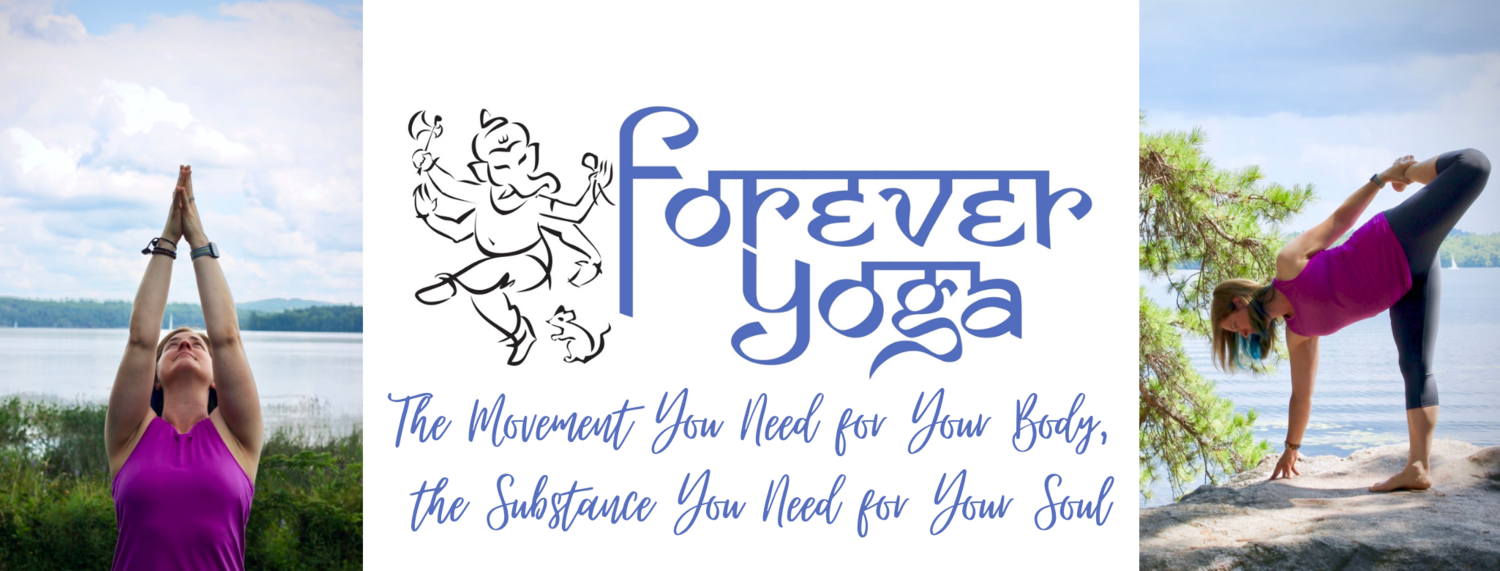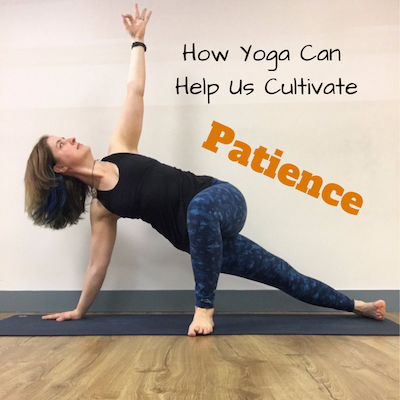How Yoga Can Help Us Cultivate Patience
/In all my classes this month we’re focusing on Patience. Look around you and you will no doubt have noticed that this is a quality in short supply in our world and culture lately. When we can press a button and have whatever we want delivered to the trunk of our car in moments, it’s not hard to see why! However, you may also have noticed that there are still many things in life that simply aren’t instantaneous. Here’s how your practice might help you cultivate patience when you need it most.
If you look in a dictionary you’ll find the definition of patience to be something like, “The capacity to accept or tolerate delay, trouble, or suffering without getting angry or upset.” I find that an interesting definition, perhaps because of my own relationship with the word (or maybe it’s my yoga practice). Sure, that may be the ultimate goal; that whatever is delayed or troubling or causing suffering becomes so easy to accept that the emotion of anger or “upset” doesn’t even arise. I don’t know about you, but I’m not there yet!
Recently, my father was experiencing a pressing health problem that required a referral to a specialist. For reasons that are still beyond my comprehension, his doctor’s office was unable to send a simple fax to the office of the specialist for nearly two weeks. He lives over 4 hours away from me so there was little I could do to intervene. Even with the distance, it was quite obvious to me that he was certainly suffering. If you think I didn’t get angry, both for my inability to do something to relieve his suffering and for the incompetence of the staff at his doctor’s office, you’d be sorely mistaken.
But thanks to doing things like holding Utkatasana for more than a single breath, I was able to notice the anger rising and instead of acting on it by calling his doctor’s office and screaming at people to do their [bleeping] jobs (which probably wouldn’t have been very effective) I was able to listen to him and come up with other ideas of places he could turn or ways to deal with the problem. Yoga can teach us that the feelings will rise but we need not act on them immediately.
If that sounds like a simple or silly thing, listen to the stories of the incarcerated, who often wish they could take a single moment of anger back. Think about the time you said that thing to that person who was never able to forgive you. Knowing that our emotions will come and go and having the capacity to be with them and know that they will pass is a huge skill. When we can create that kind of space, we give ourselves the opportunity to respond (with clarity and intention and maybe even kindness) rather than react. Will that happen every time? No. It certainly doesn’t for me. I’m still human. Just ask me what I do the next time my husband forgets to take the trash out for the 9 millionth time. ;-) But over time and with practice, our capacity can grow, and our tolerance can grow.
So to me, I might re-write that definition to read, “The capacity to accept or tolerate delay, trouble, or suffering without acting on our anger or upset.”
That word capacity is a big one. How big is our capacity to hold this moment, no matter what the quality of the moment might be?
Think about the happiest day of your life. What do you actually remember in detail? Especially if it was a long time ago, what has stayed with you? Now imagine if you hadn’t had the capacity to be in that moment. What if you had been rushing on to the next thing? What might you have missed? What if your capacity to be present with that day or time had been greater? What might you still be able to recall that isn’t possible now?
In our yoga practice we constantly draw our attention back to the present moment. We do that by feeling sensations in the body, by focusing our attention on our breath, or in many other ways. It is the nature of our mind to think and take us away from the present moment, most especially if that moment isn’t comfortable. But when we continually draw our minds back to sensation and back to breath throughout our practice, we’re training the mind to stay with the moment, even when the moment is difficult, whether that difficulty is the sensation of the muscles working hard to hold a position or the emotions or thoughts rising that we wish were different or non-existent.
Think about those moments when you’re trying to achieve a difficult pose in your practice. Often, it doesn’t happen overnight. It takes repetition, concentration, practice (notice they don’t call it a “yoga perfect”!). How many times will you have to do headstand before you can hold it away from the wall without a spotter? I don’t know. Neither do you. Talk about developing your capacity to accept or tolerate delay! That same “not knowing” that comes with trying to achieve a difficult pose, is the same “not knowing” that comes when you’re waiting for a doctor’s office to send a fax. Your ability to practice being with the not knowing on your mat helps you develop your capacity to be with it when it happens in your life.
Then there’s that bit about acceptance or tolerance. Learning acceptance or tolerance can be the key to staying present in the most difficult moments of life. When your friend calls you to tell you they need a shoulder to cry on, do you listen to them fully or do you check your email while they’re talking? The last time you were experiencing suffering of your own and someone truly was there to listen to you, how did that make you feel? Being with ourselves or the people we love in those difficult moments is so hard. Being with my father while he was in a great deal of pain recently was definitely difficult. No one wants to suffer, and no one wants to see someone they love suffer. But to give yourself or someone you love the gift of your presence in those challenging moments is so amazing. Being able to accept this moment as it is, no matter how difficult and trust that it will change, sooner or later, is another ability we can grow in our yoga practice.
No one wants to be alone when they are suffering. So as we develop our tolerance of those poses that aren’t our favorites or the acceptance that yes, she’s going to make us chant that mantra again, we grow our capacity for all of life. We get to be present for all of life. We get to be present for those we care for and love. We get to express our love and care by giving that person, even in their most difficult moments, the gift of our full attention. A gift that again, seems so rare these days. We’re more able to hold the not so great moments and the great ones for ourselves and others, so we can actually experience all of what life has to offer, rather than letting it pass us by. We can accept that it won’t all be perfect and it won’t all be pleasant, and by accepting that, we have a much greater chance of really experiencing the great moments to their fullest.
Life is short. I’d much rather live in capacity, tolerance, acceptance and presence, so I think I’ll keep practicing. How about you?




